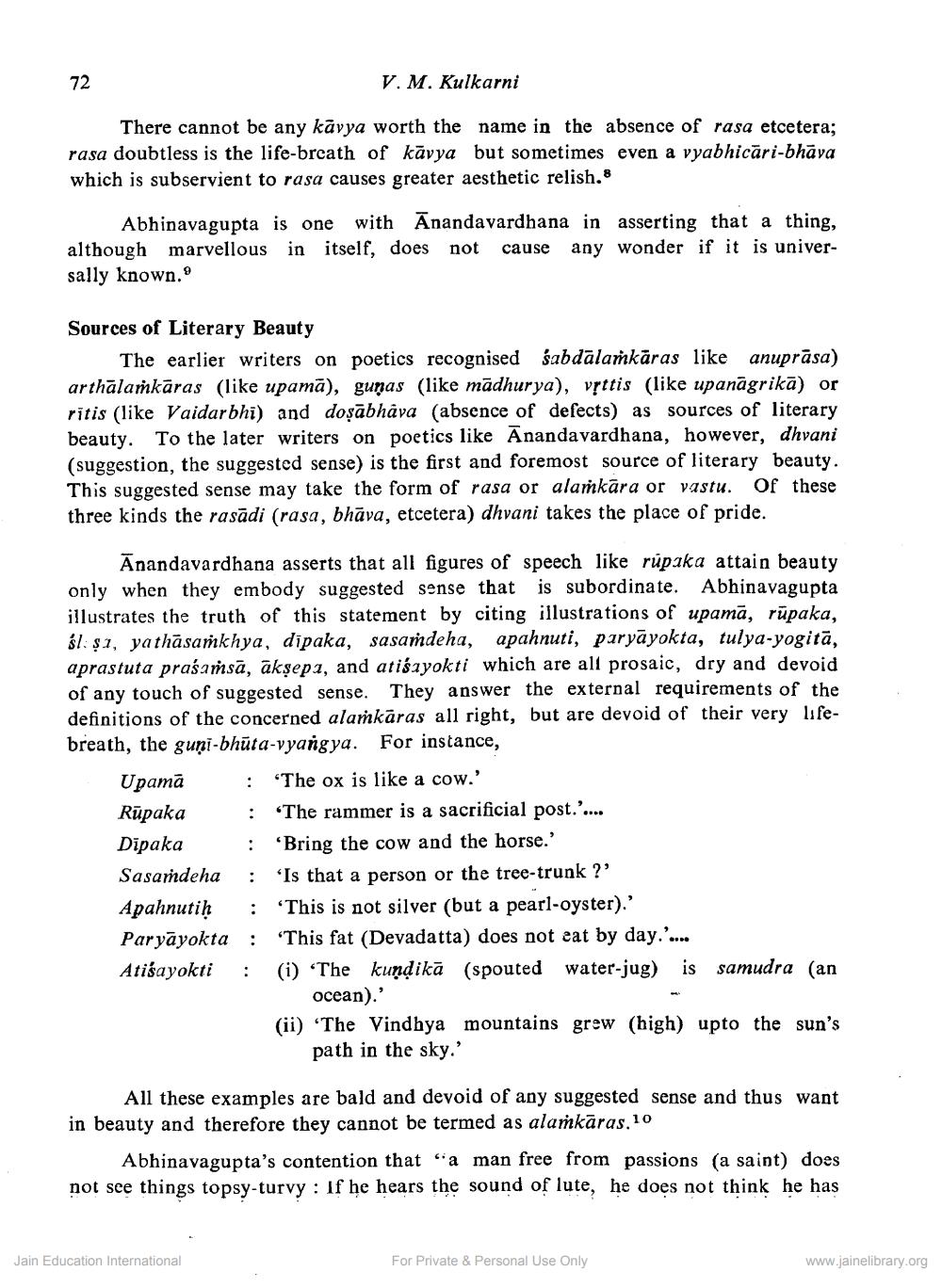Book Title: Abhinav Guptas Ideas in Locana on Nature of Beauty of Kavya Author(s): V M Kulkarni Publisher: Z_Aspect_of_Jainology_Part_2_Pundit_Bechardas_Doshi_012016.pdf View full book textPage 3
________________ V. M. Kulkarni There cannot be any kāvya worth the name in the absence of rasa etcetera; rasa doubtless is the life-breath of kāvya but sometimes even a vyabhicāri-bhāva which is subservient to rasa causes greater aesthetic relish. 8 Abhinavagupta is one with Anandavardhana in asserting that a thing, although marvellous in itself, does not cause any wonder if it is universally known. Sources of Literary Beauty The earlier writers on poetics recognised śabdālamkāras like anuprāsa) arthalamkāras (like upamā), gunas (like mādhurya), vșttis (like upanāgrikā) or ritis (like Vaidarbhi) and doşābhāva (absence of defects) as sources of literary beauty. To the later writers on poetics like Anandavardhana, however, dhvani (suggestion, the suggested sense) is the first and foremost source of literary beauty. This suggested sense may take the form of rasa or alamkāra or vastu. Of these three kinds the rasādi (rasa, bhāva, etcetera) dhvani takes the place of pride. Anandavardhana asserts that all figures of speech like rüpaka attain beauty only when they embody suggested sense that is subordinate. Abhinavagupta illustrates the truth of this statement by citing illustrations of upamā, rūpaka, śl: $1, yathāsamkhya, dipaka, sasaṁdeha, apahnuti, paryāyokta, tulya-yogitā, aprastuta prasamsā, aksep1, and atiśayokti which are all prosaic, dry and devoid of any touch of suggested sense. They answer the external requirements of the definitions of the concerned alamkāras all right, but are devoid of their very lifebreath, the guni-bhūta-vyangya. For instance, Upamā : “The ox is like a cow.' Rūpaka : "The rammer is a sacrificial post.'.... Dipaka : “Bring the cow and the horse.' Sasamdeha : “Is that a person or the tree-trunk?' Apahnutih : “This is not silver (but a pearl-oyster).' Paryāyokta : 'This fat (Devadatta) does not eat by day.'.... Atiśayokti : (i) The kundikā (spouted water-jug) is samudra (an ocean).' (ii) “The Vindhya mountains grew (high) upto the sun's path in the sky.' All these examples are bald and devoid of any suggested sense and thus want in beauty and therefore they cannot be termed as alamkāras. 10 Abhinavagupta's contention that "a man free from passions (a saint) does not see things topsy-turvy : If he hears the sound of lute, he does not think he has Jain Education International For Private & Personal Use Only www.jainelibrary.orgPage Navigation
1 2 3 4 5 6 7 8 9 10
